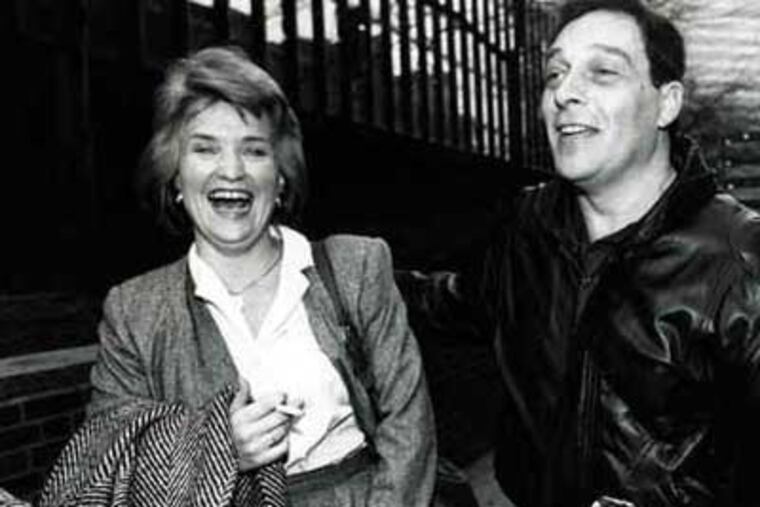Trailblazing Philadelphia cop Carol Keenan dies
Carol Keenan, a Goretti girl who became the first female homicide detective in Philadelphia, wasn't about to let cancer get in the way of her having a great time with friends and family.

Carol Keenan, a Goretti girl who became the first female homicide detective in Philadelphia, wasn't about to let cancer get in the way of her having a great time with friends and family.
So, in July 2008, Keenan threw an "I Ain't Dead Yet" party at her North Wildwood home. She had white T-shirts made up with gold letters reading "Chemo Sabie" on the front and a grim reaper illustration with a red line through it on the back.
Keenan, who was with the Philadelphia Police Department for 14 years, made history when she became the first female detective of the elite Homicide Unit in 1985.
"Once you leave the Police Department, you're kind of forgotten. Carol left in '89, and 30 years later there had to be 168 people . . . who came here just to be here for her because she was such a positive presence," said Inspector Jeanette Laker Dooley, with the Internal Affairs Division. "She just energized so many people. They wanted a Carol fix."
On Thursday, Keenan, 60, succumbed to a form of cancer in her home after nearly a three-year battle, said close friend Larry Gerrard, her neighbor and a former homicide detective colleague.
Mike Chitwood, a former Philadelphia detective who is now Upper Darby police superintendent, mentored Keenan when she started investigating homicides as an officer in the Juvenile Aid Division. When Keenan later passed the detective exam, she asked for and received Chitwood's badge number 710, telling the Daily News: "I hope someday I can help someone the way he helped me."
"Keenan was great detective, great person, a loss to society," Chitwood said.
Attorney Richard Sprague, who represented Keenan in a 1987 lawsuit against the city and Police Department, praised her as "one of the brightest and best and hardworking" detectives he's worked with.
In her lawsuit Keenan alleged sex discrimination and violation of her First Amendment rights, contending that she had been transferred from Homicide to South Detectives after complaining about a pattern of gender bias. Four of her former male colleagues also sued on First Amendment grounds after being shipped out to different divisions because they had supported her case.
A federal jury in 1990 awarded them $2.44 million, later reduced by a judge, in compensatory and punitive damages. The litigation by then had essentially nixed Keenan's career.
After the verdict, Keenan said: "In 1989 there were 501 homicides. I should have been listed as number 502."
"Prior to Carol Keenan, the expectation for female performance was less than adequate," Dooley said. In part because of Keenan, she said, current females in law enforcement "are accepted and given the chance to prove themselves with the understanding that they have the potential for excellence."
She is survived by her husband Robert Berardo, a retired lieutenant with the Major Crimes Unit, and her nephew J. Patrick. She graduated from St. Maria Goretti High School in 1968 and the Police Academy in 1976.
Services: Viewing will be 8:30 to 9:45 a.m. Tuesday at St. Ann's Church, 2900 Atlantic Ave., Wildwood, N.J. Funeral Mass will follow at 10 a.m. Burial will be private.
Keenan "insisted on casual attire" for her viewing and funeral, Gerrard said. "No suits."
In lieu of flowers or cash, Keenan's husband asks family and friends "to do an act of kindness for a stranger," Gerrard said.